Happy Sunday, all. This week seems to have flown by, but I did manage to catch a couple of show-stopping recipe links and interesting reads along the way. I hope you’ll enjoy them as much as I have.
Let’s start with a flash of color! These mashed purple yams with sesame brown butter from The Endless Meal couldn’t possibly be prettier–or more appetizing. (Follow Kristen’s instructions to veganize the recipe.) I can’t wait to try them as a dinner side.
Katie of Produce on Parade has absolutely outdone herself with these bold, flavorful vegan curried noodles. What a perfect, one-dish meal!
A dish that screams “springtime”: Ashley’s beautiful, vegetable-laden spring farro salad with roasted garlic vinaigrette.
A dessert that’s both decadent and gorgeous: nutella tofu cheesecake. My lord.
Teff is an ingredient that I don’t use nearly enough. But Tessa’s teff almond butter cookies may be just the vehicle I need to give them a try!
Reads
1. To begin, a really interesting article about feigned illnesses (including mental illness) throughout history. The author, Daniel Mason, is a psychiatrist and a novelist (I enjoyed his book, The Piano Tuner), and he takes a deep interest in what motivates a person to feign illness. He details how feigned illnesses have been used to aid and abet crime, to avoid or escape military service, and to garner attention. He also writes about the sense of an audience that can, for some people, accompany the experience of sickness, and he unpacks some of the self-deceptions concern psychiatrists:
“Many of the classic defense mechanisms described by Freud and his successors involve some kind of self-deception: the conversion of mental symptoms into physical ones is, after all, a deceit played upon the body by the mind. But we may lie about the source of our mental symptoms too. We tell ourselves that we despise what we actually desire. We fantasize. We distort. We think we are angry at a child when we are angry at a spouse, or at a spouse when we can’t bear yelling at a child. We deny emotions or project them onto others…And we lie, in part because…deception keeps us safe.”
Most of the health problems I’ve encountered were deeply tied to mental struggles–mental illness in the case of my anorexia, or stress/anxiety in the case of my GI problems. My client base is full of individuals who experience a similarly blurry line between what might be called “mental” and “physical” illness. My resulting intimacy with psychosomatic illness has given me a porous vision of the boundary between mind and body. Research suggests that mental symptoms can manifest physically through some well-validated biological mechanisms, so I’m not sure that I would call the conversion of mental symptoms into physical ones a “deceit” (even if I know what Mason means). Still, I find this discussion of defense mechanisms interesting, and the historical perspective that Mason offers is colorful indeed.
2. Perhaps some of you spotted this ED and recovery narrative in Self magazine. It’s entitled “What It’s Like to Care Too Much About Healthy Eating,” and it’s a story of both anorexia and orthorexia. It is powerful and harrowing (definite trigger warning), but it has a positive and inspiring ending. One thing I liked was that the subject of the article, Rachel Levine (who shared her story with writer Erin Bried), mentions that her orthorexic tendencies may have been connected to family dynamics:
“Four months after I’d checked in, my parents came to visit. I was still extremely underweight, but to celebrate their arrival, I got a pass to join them for lunch in town, where my counselors advised me on what to eat: a club sandwich (with cheese and ranch dressing) and fries. After I’d ordered, the waitress turned to my dad. “I’ll have a salad,” he said, “no dressing, grilled chicken on the side.” Upon hearing his healthier-than-mine order, I burst into tears and ran outside.
When I was growing up, food and exercise had always been a major deal in my house. Both of my parents were always physically active. My mom would often follow fad diets—with little success. And my dad, perhaps because he’s a doctor, viewed everything he put into his mouth in terms of its health impact, as in “Eating too much of this could one day give you a heart attack.” He was always concerned with his diet. So when my dad ordered, something in me clicked. Countless hours of family therapy would eventually reveal that I wasn’t the only one in my family who had orthorexia. He ultimately got help, too, and our shared struggle has brought us closer.”
It’s fantastic that Levine has the courage to mention this. In my work, I can’t tell you how often I hear childhood stories that unveil interconnectedness among different family members’ struggles with food. I’ll hear a client describe how her mother picked at a plate of salad while the rest of the family feasted on dinner; about a father who read nutrient labels obsessively, or a sibling who was always on a diet. I hear about homes in which diets and weight loss were always an open topic of conversation. Often it’s the case that these patterns emerge from well-intentioned places; recently, a client told me that, after her father suffered from a heart attack, her mother put the entire family on an extremely health-conscious diet. It was appropriate for her father’s needs and an act of love, but it left my client with a lifetime of anxieties about food that are only now starting to dissipate.
I’m not suggesting that we necessarily look at our family dynamics as a way of assigning blame or avoiding the process of doing our own “work” when it comes to recovery. I myself had a mother who had a fantastic relationship with food, so I know very well that there isn’t always some sort of direct lineage between parents and children when it comes to EDs. Beyond that, we all needed to be granted some freedom and forgiveness as we struggle with our own stuff. But I do think it’s important for us to remember that our words and actions around food are felt and heard by our families (the families we live in, and the families we create–close friends, etc.). And I think that it’s often necessary for members of a family to band together when confronted with an ED, first by being willing to examine how shared dynamics may have contributed, and more importantly by active participation in the healing process.
3. A great profile of Jane Goodall, who at the age of eighty-one continues to do remarkable work for and with chimpanzees.
4. An interesting new study has shown links between high fat diets and neurobehavioral shifts, mediated through the microbiome. The study, which was sadly conducted on mice, demonstrated that when non-obese mice were given a transplant of gut flora from mice who had been fed a high-fat diet (as opposed to a control diet), they showed anxiety, impaired memory, and repetitive behaviors, as well as increased intestinal permeability and raised inflammation markers. Needless to say, far more research is necessary to determine the mechanisms at work here, as well as the real-world implications for human test subjects and human nutrition, but it’s provocative for sure.
Incidentally, it reminded me of Harvard’s incredible study last year, which demonstrated a link between diets that are high in meat/dairy and a rise in Bilophila gut bacteria, which are linked to inflammation.
5. Finally, I’m sure that many of you have already seen this op-ed from Dean Ornish in the New York Times this week. The title is a little catchier/more provocative than I’d like, but I thought it was well done overall. Ornish’s main point is to say that our current wave of alarm about sugar (which verges on hysteria, depending on what you read) is really drawing attention away from the big picture when it comes to diet. The American health and obesity crisis is not the result of one single dietary culprit: it’s the result of a whole nexus of excesses, from meat to saturated fat to refined carbs to sugar, as well as the role of limited exercise/movement. Ornish puts it simply: “The debate is not as simple as low-fat versus low-carb.”
He goes on to cite his studies and some others, which show that lower-fat, plant-based, whole foods diets are strongly correlated with chronic disease reversal. I believe in the power of plant-based diets, and so I always enjoy reviewing these studies. But the takeaway point, for me, wasn’t really about pitting one kind of diet against another. It was an attempt to fight back against the greatest trend in the nutrition world these days, which is to single out one thing (right now, sugar/refined carbs) and demonize it. The truth of the matter is that nutrition science is multi-faceted, complicated, and nuanced, not simple and easy to pack into sound bites. The “eat this, not that” approach sells books and generates traffic, to be sure, but it does us a disservice, because it prevents us from understanding the complexity of nutrition science.
And that’s it for today. If you missed Friday’s post, I’m giving away an awesome prize from SproutLiving, makers of high-quality, superfood-infused vegan protein powders (and I shared a great smoothie/”ice cream” bowl recipe, too). Check it out, and I’ll see you back here tomorrow!
xo
You might also like
Two Aprils ago, I sat in my apartment with a college friend who over the years has become like a brother to me, though he lives on the West Coast and we see each other only a few times each year. “You know,” he said, “I know it’s last minute and you’ll probably say no, but you should come to Passover at my Mom’s tonight.” The invitation made good sense; I’d become close to his family when we were undergraduates, and, since his…
As you may have noticed, weekend reading is a little bit late this week. I tried to get it up yesterday, but work got in the way, so we’ll call this the Monday edition. What better way to get a new week started than with some gorgeous food photos and some new reading material? St. Patrick’s Day is a week from tomorrow, and I’m already starting to see a glut of green-themed recipes on and around the web. These green tea pancakes–which use…
Greetings from Austin! This final VVC has been a bittersweet journey so far — full of good food and good friends (as always), but tinged with the knowledge that it’s the last conference of its kind. I’m hopeful that something a lot like it will emerge before too long. In the meantime, I’ve had a wonderful time attending panels. Big themes this year have been feminism, social media/marketing, and how the vegan community deals with health information and the phenomenon of ex-vegans. Ginny…
“When you don’t know what to do or how to move forward, stand still.” This is a piece of advice that my mother gave me during my post-bacc years. That time in my life was marked by a lot of indecision and agonized choices–most often, the choice of whether or not to keep going with my program for another semester or not. I’d receive yet another poor score or a discouraging comment or simply be hit with a spell of burnout, and I’d doubt what…


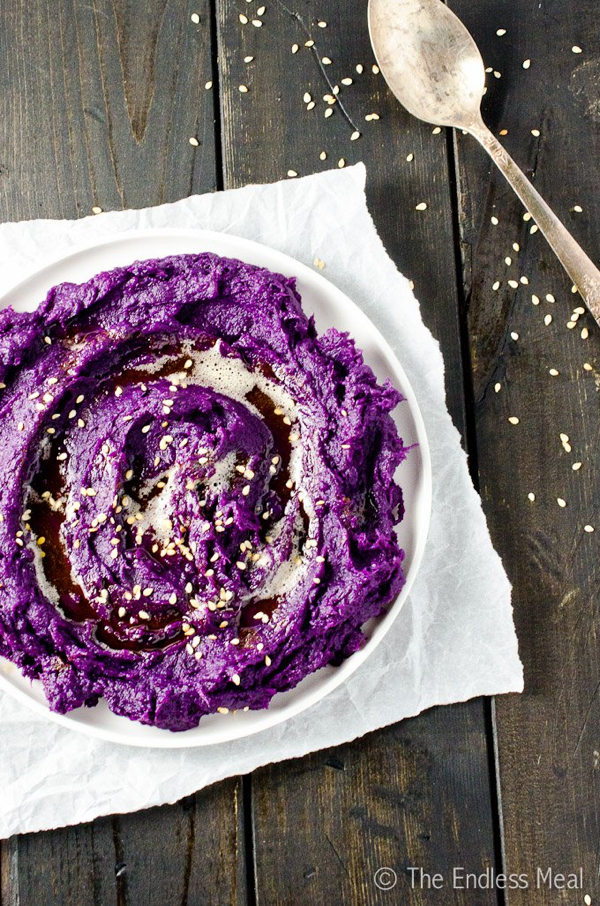
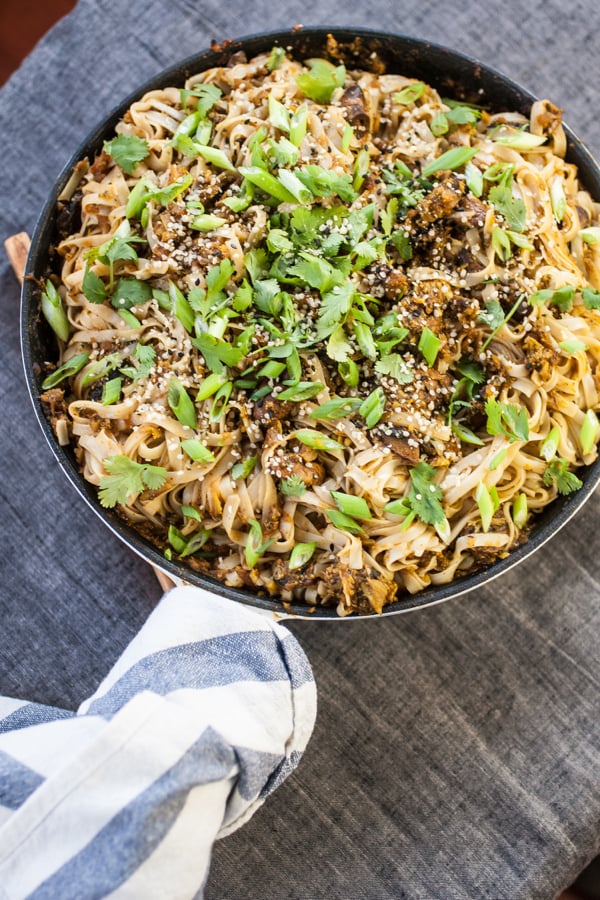
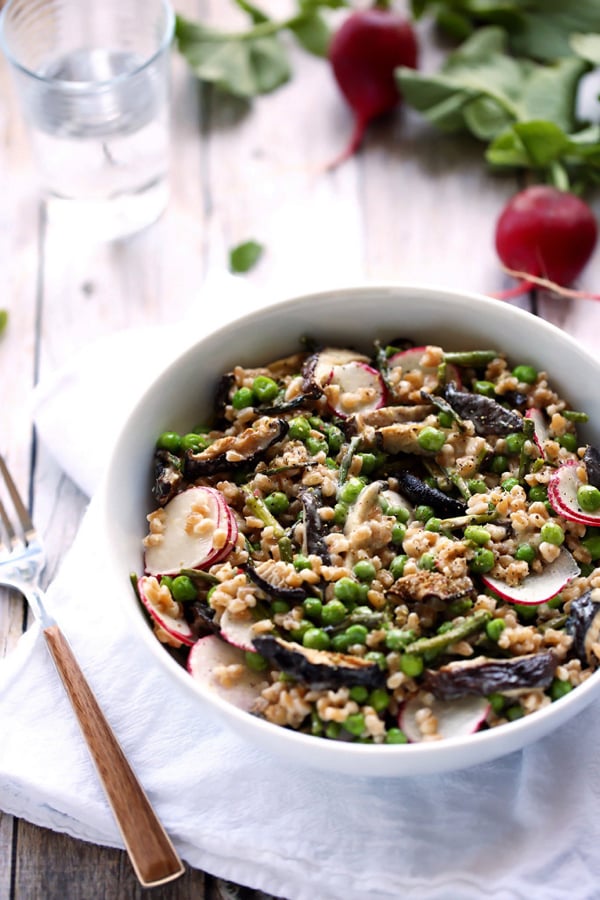
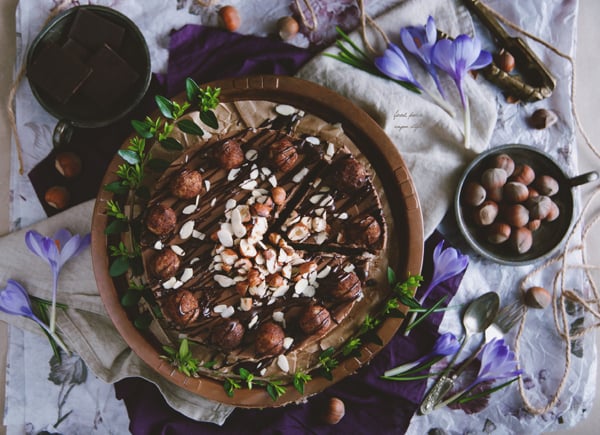
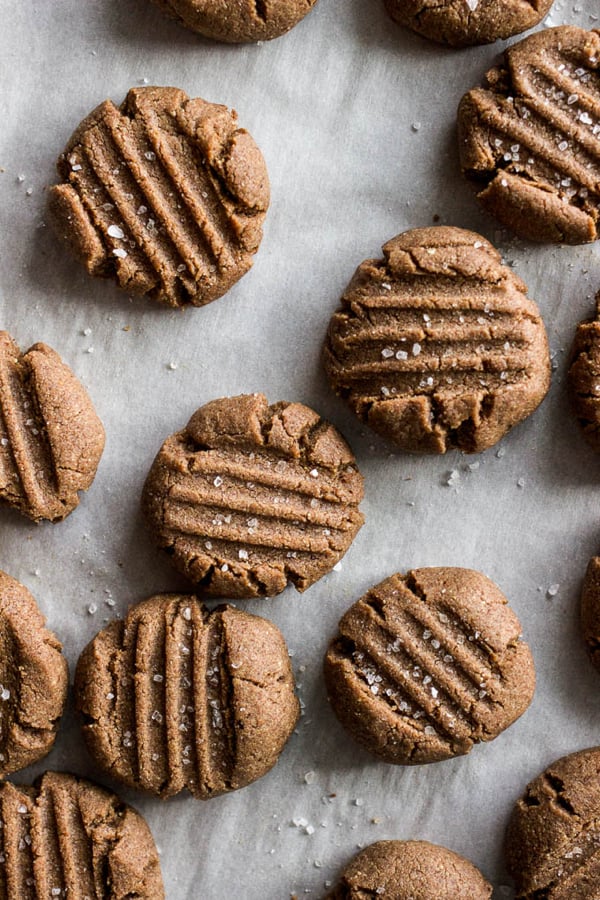
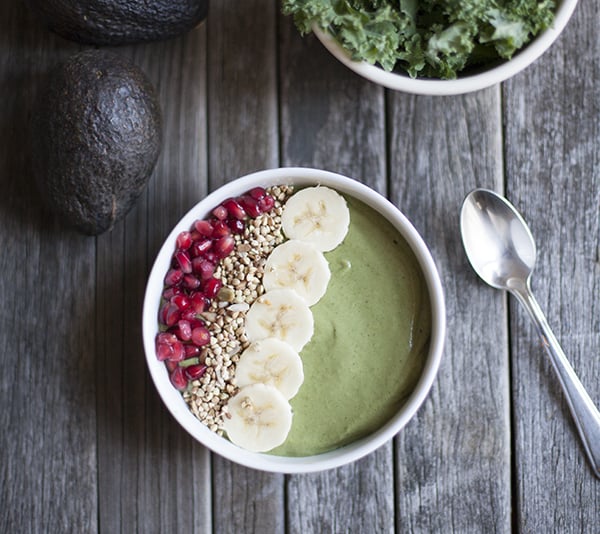
Leave a Comment
I always appreciate your Weekend Reading posts. You and I have the same taste in research articles!
The article by Dr Ornish was great. It is somewhat shocking that we as a society continue to vilify single “things” as the cause of all our health problems. When will we see nutrition and the body as a whole picture…not just fragments to isolate and analyze independently.
I have had a series of health issues and was told to stop eating sugar by an ND. I dutifully stopped eating all sugar, which isn’t the worst advice I’ve ever received, but it didn’t cure anything either.
I cringe at similar recommendations to “go vegan” or “go raw” to cure all health woes. I love being vegan and wouldn’t change my diet for anything, however it is not a panacea that will fix all of your health problems and guarantee good health in the future. I believe being vegan is healthy, good for the planet and the most compassionate choice. Unfortunately being vegan hasn’t given me perfect health so I am grateful that was not my goal when I changed my diet.
Thanks again for highlighting these thought provoking articles.
would you mind to provide the link to the Daniel Mason article? I am taking a class on illness this semester, and this might be helpful for my final paper. Thank you!
Beth, so sorry! The link has been added to the post (I have a terrible habit of doing that). Good luck with your paper!
Do you happen to have a link to the first article about “feigned illnesses”? I don’t know if I’m just not seeing it, but I can’t seem to find it! I’d love to read it and get his perspective. I don’t think we can necessarily separate the mind and the body since our feelings and emotions create biological reactions in the body. Just as someone can indue an anxiety attack by drinking too much caffeine or taking certain medications, or get depressed after drinking alcohol, because those substances are creating a cascade of biological reactions in the body that shift our neurotransmitters and impact how we feel and how our bodies operate – which also include digestive processes. So at the end of the day, a person struggling with poor digestion that stems from stress and anxiety is still experiencing poor digestion – it’s not just a figment of their imagination. I just don’t think it’s possible to separate physical and emotional because the two are so intertwined. Anyway, I’d love to read the full article if I can. Thanks so much for mentioning it. This is a near and dear issue to me as well.
Sarah,
Your thoughts are very much in line with mind on this. Thanks for sharing!
I’m so sorry I forgot the link. Terrible habit. Here it is: http://www.laphamsquarterly.org/swindle-fraud/rogue-wounds
G
I hear a lot about orthorexia these days, and while there are undeniably some people who suffer emotional distress stemming from an obsessive preoccupation with healthy eating, I would like to offer an alternative view. I personally feel best when I eat only whole foods and lots of leafy greens, and because of some ongoing serious health problems, I feel unwell from even an occasional unhealthy treat. I don’t mind eating exclusively healthy foods and feel perfectly happy this way, and what actually causes the problem is others’ reactions. I find that people tend to be really judgemental when someone eats differently from everyone else, and healthy eaters are often labelled as “health nuts” or orthorexics. Several hundred years ago, before the development of white sugar, refined flour, trans fats, and other processed foods, almost everyone was a healthy eater. Eating nourishing, whole foods was the norm rather than the exception because that is the only kind of food that was available. It makes me sad that mainstream diets have become so unhealthy that anyone who chooses to eat differently is viewed as strange.
In an interesting article on Greek centenarians, the author mentions that in cultures where healthy eating is the norm, eating healthy food is automatic, and no one really stresses about it. He writes, “You’re going to grow a garden, because that’s what your parents did, and that’s what your neighbors are doing… you’ll share a cup of the seasonal herbal tea with your neighbor because that’s what he’s serving.” http://www.nytimes.com/2012/10/28/magazine/the-island-where-people-forget-to-die.html?_r=0
Hi Trisha,
Thanks for sharing your perspective. I am grateful that orthorexia has gotten more attention (though as another reader noted, this story seems as much about anorexia as orthorexia), but I think the biggest challenge of addressing it is that — perhaps more than with other forms of EDs — it’s a “you know it when you see it” kind of thing. It’s absolutely true that, due to health challenges or simply as a preventive measure, some people do feel best eating diets that might feel overly restrictive to others. What might trigger or compound orthorexia for one person is often totally suitable for another.
So, I’d hesitate to say that we should all be eating at a certain level of healthfulness, and that then no one would pathologize healthy eating into orthorexia if we did. I think it’s true that the effort to eat healthfully looks a little different for everyone, and that some folks need more freedom than others, lest a rigid and guilt-ridden mentality develop. I also don’t believe that we should marginalize healthy eaters or demonize healthy eating, just because orthorexia is gaining attention. The fact that the effort to eat healthfully can take on dangerous dimensions in some cases doesn’t mean that we ought to problematize the habits of folks who are simply eating to thrive — and who enjoy and savor their lives when they emphasize health in their food choices.
I loved that article about centenarians, too.
G
Just wanted to point out that the Self magazine article was written by Erin Bried but is actually about the experience of a woman named Rachel Levine.
Alanna, thanks so much for pointing that out! I missed that in the opening graf. I’ve changed the post accordingly.
Thanks so much for including my cookies, Gena! These reading links are fantastic. As a counselor, I am always intrigued with the defense mechanisms that people develop and the connection between physical and mental health. Adding The Piano Tuner to my book list, too. 🙂
That pruple mash. It’s just so wild. Fabulous!
I love how you always find such interesting articles about eating disorders. Thank you so much for sharing.
What a lovely portrait of Jane. Thanks so much Gena.
What a lovely portrait of Jane. Thanks for sharing with us as always Gena.
I look forward to this round up each Sunday. Thanks for the inspiration.
Good reads Gena. The feigned illness thing is something I was thinking about just the other day. I read an article on children “pretending” to have stomach aches to avoid going to school but apparently it’s often the mental anxiety transforming into a physical one. When I was ill I was often accused of “feigning” stomach aches but the boundary between mind and body was definitely blurry in those situations.
The focus seemed to be more on anorexia than orthorexia in Erin Bried’s story – not that that makes it any less harrowing – andI suppose frequently anorexia starts off as a desire to be “healthier” and then spirals into extremes…
Off to check out those recipes now!
I was accused of the same, Emma, except in my case I often did feign it. I had digestive issues that were real and persistent, and I realized that my predisposition to getting sick (I’ve always had the immune system of a fetus) could work in my favor if I was scared of doing something.
I think this created a very interesting relationship, later on, between mind and body when it comes to my health challenges. I’ve sometimes struggled to accept that my illnesses have been more psychosomatic than I’d like to admit; at other times, since stress and anxiety quite literally sicken me, I’ve had to fight to have health care providers recognize the legitimacy of my symptoms.
As for the SELF article, I agree that it reads more like anorexia, though it does sound as though the initial impetus was a “healthy eating” thing, rather than a weight loss/thinness thing. Which is how I’ve always separated my own anorexia and orthorexia, in terms of what the original motivation was.
Always so happy to see your name in my comments, sweetie.
<3